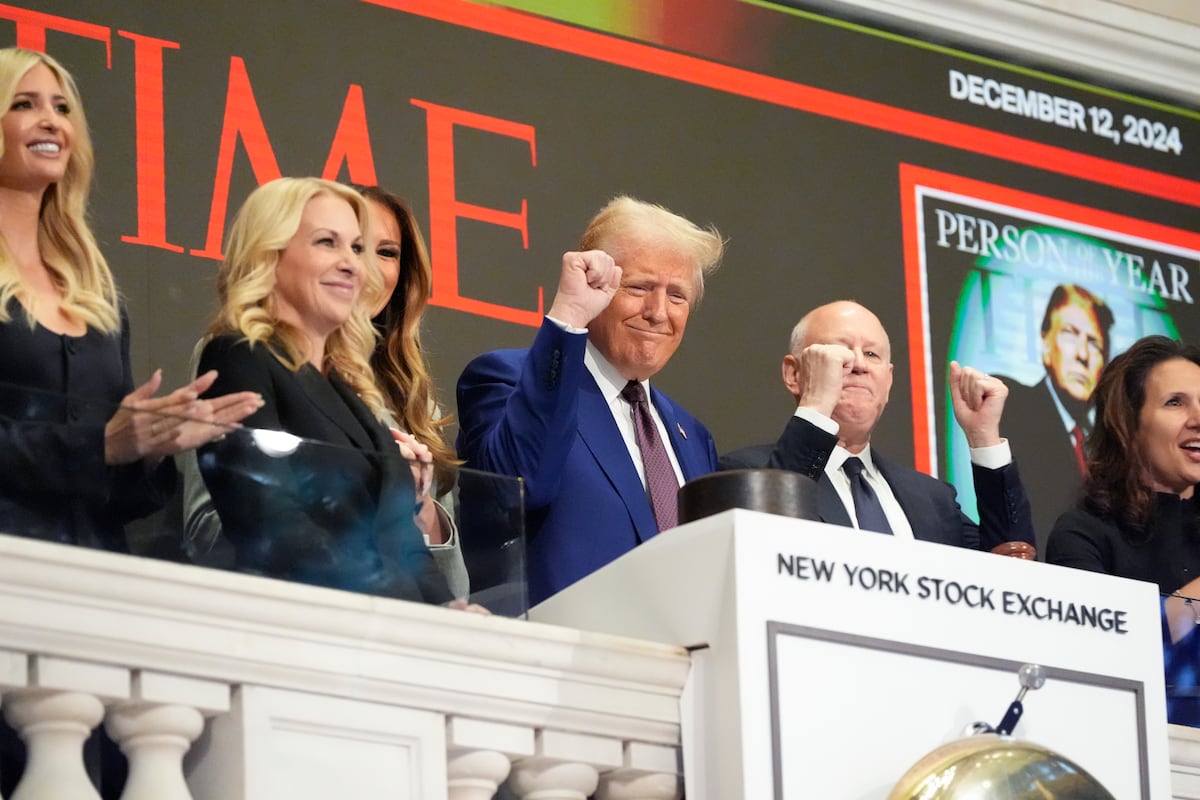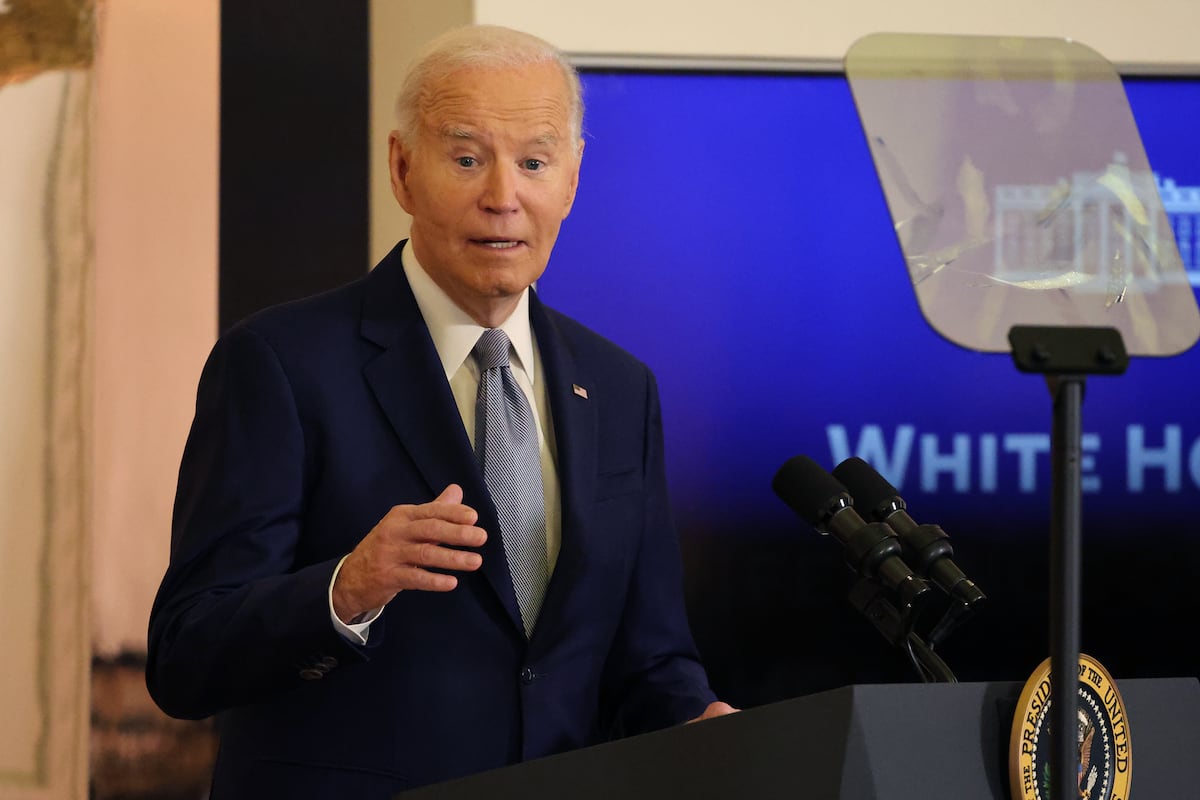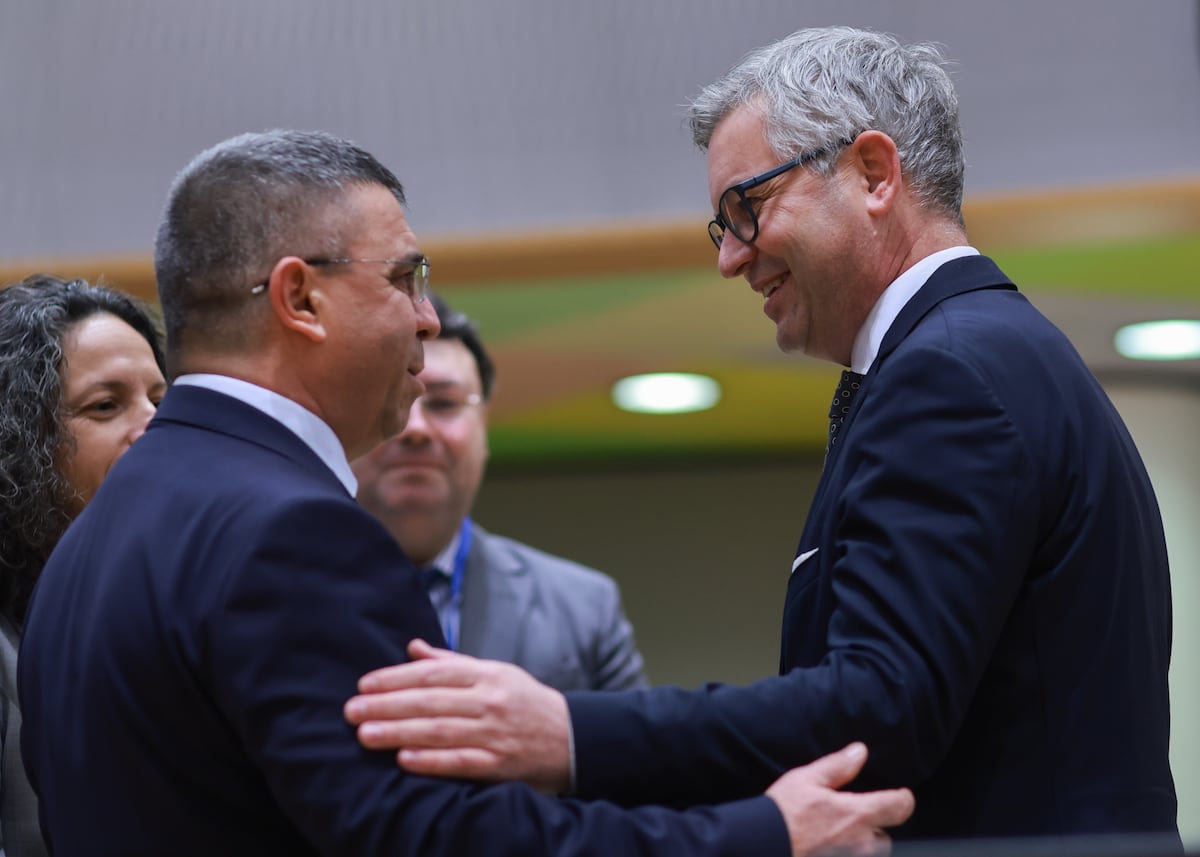Donald Trump rang the opening bell of the New York Stock Exchange this Thursday, coinciding with the naming of the US president-elect as person of the year by the magazine time. The Republican, who began 2024 as a defendant in four criminal cases, was found guilty of one of them—the Stormy Daniels case— and survived two attempted attacks during the electoral campaign, he is thus crowned the undisputed protagonist of an unprecedented electoral and information cycle. An act, in the heart of global capitalism, rich in symbolism for a leader who frequently uses the stock market as an indicator of the success of his economic policies, and who claims his previous experience as a great businessman to ensure the effectiveness of his management as political.
Trump has always liked to be number one and monopolize the spotlight, and the image of the president-elect this Thursday on the Wall Street rostrum, accompanied by his wife, Melania; his two daughters, Ivanka and Tiffany, and the vice president-elect, JD Vance, among others, is the visible consecration of his success, after completing a political comeback in the November elections, in which his party took control of both houses of Congress.
At the Wall Street event, Trump was also accompanied by many of the candidates to occupy the most prominent positions in the Cabinet, such as executives Scott Bessent, appointed as Secretary of the Treasury; Howard Lutnick, of Commerce; Robert F. Kennedy Jr., his controversial election as Secretary of Health; North Dakota Governor Doug Burgum for the Department of the Interior; or Kelly Loeffler, whom he intends to place at the head of the Small Business Administration. Markedly business profiles for the most visible event on Wall Street, in which a panel placed expressly reproduced the special cover of the time—the second that the weekly dedicates to the Republican—, with a photograph of him taken by photographer Platon in November in Mar-a-Lago (Florida).
Before ringing the bell, Trump spoke briefly on the floor, taking the opportunity to promote the populist economic program on which he campaigned. He affirmed that his policies will create jobs and praised the members of his future Cabinet who accompanied him at the event. “I think the economy is going to be very strong,” he said, thanks to his agenda of tax and benefit cuts and open-ended deregulation, which earned him support from Wall Street and top business leaders before the election. Especially in the final stretch of the campaign, when it began to gain traction after the initial enthusiasm caused by the candidacy of Democrat Kamala Harris, Wall Street bet without hesitation on the Republican’s return to the White House.
The president-elect repeated his promise to reduce taxes, saying he will lower the corporate tax rate to 15%, but said nothing about his intention to impose tariffs on imports from Mexico and Canada (25%) and China ( 10%), a measure with a boomerang effect that would return with a rise in prices and foreseeable inflation. It was precisely the high cost of living that followed the pandemic, with a peak of almost 10%, one of the assets that gave him the most support among voters, especially among those with fewer resources.
While his coronation was taking place on Wall Street, his press secretary revealed that Trump has invited Chinese President Xi Jinping to attend his inauguration on January 20. With this move, Trump extends a diplomatic olive branch while threatening to impose massive tariffs on Chinese goods once he is president. Karoline Leavitt, the Trump administration’s incoming press secretary, confirmed Thursday that the president-elect invited Xi, but said it was “to be determined” whether the leader of China, the U.S.’s main economic and military competitor, would attend. the ceremony. In an interview on Fox News, Leavitt called the invitation “an example of President Trump establishing open dialogue with leaders of countries that are not only our allies, but also our adversaries and our competitors.”







